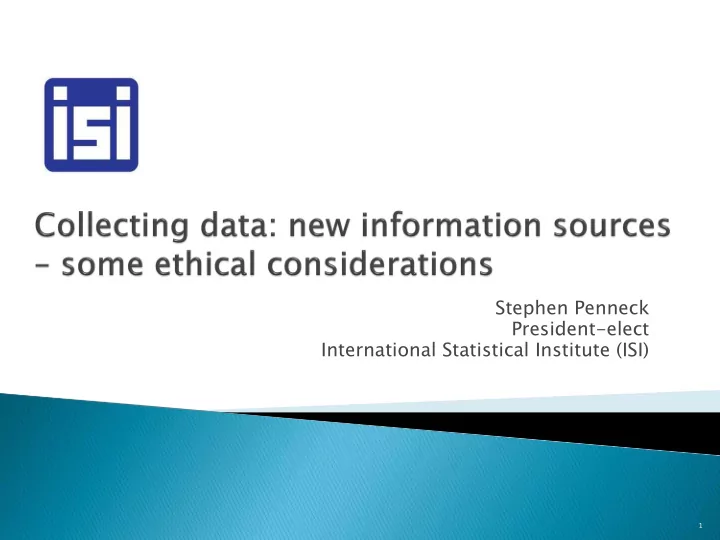

Stephen Penneck President-elect International Statistical Institute (ISI) 1
Examples include Scanner data for price statistics Mobile phone data for migration Traffic sensors for transport movements Social media for consumer confidence Internet purchases for economic statistics Big Data are: Transactional Real time Complete Accessible electronically 2
Who we are, what we do, who with and where Enormous potential benefits for analysis Data subject may be unaware how their data is collected or used Nonlinearity of Big Data processing may obscure eventual usage Societies views easily affected by high profile cases 3
UN Fundamental Principles of Official Statistics: principle 6 ISI Declaration of Professional Ethics: principle 12 African Charter on Statistics: principle 5 Enshrined in many national statistical laws 4
Using Big Data has the potential to bring new insights Free from many sources of traditional measurement error To gain access, statistics offices need to negotiate agreements or gain legal access rights. Data need to be obtained in an identifiable form to enable them to be used statistically Use of Big Data could reduce public trust UN Global Working Group on Big Data: China 2014, Abu Dhabi 2015, Dublin 2016, Colombia 2017, Rwanda 2019 5
Use the best methods to preserve confidentiality Document and publish these Have good governance and some form of ethics board to balance the risks against the benefits Make sure we have the right risk frameworks Promote debate – in the profession and publicly 6
Recommend
More recommend